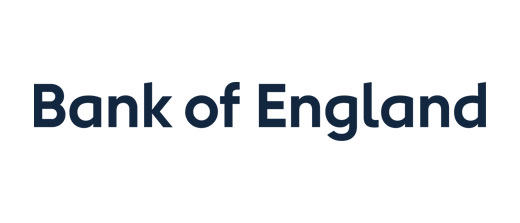Joint news release
The Bank of England, the Monetary Authority of Singapore, and the Bank of Thailand announced a collaboration to explore the technical and policy implications of settling foreign exchange (FX) transactions using synchronised settlement mechanisms.
Building on insights from Project Meridian FX1, this collaboration will test synchronised FX settlement across a diverse technical and institutional landscape. In the first instance, the experiments will leverage simulated versions of participating central banks’ Real Time Gross Settlement systems and Distributed Ledger Technology-based settlement environments to test:
- Interoperability between the systems of the participating central banks.
- Complex, multilateral use cases involving different types of settlement infrastructure.
Participating central banks will conduct experiments that can potentially enable atomic, real-time FX transactions that are fast, secure, and interoperable across diverse systems. Specifically, this collaboration will explore synchronisation’s potential to support Payment versus Payment FX settlement across jurisdictions with different infrastructures, time zones, and regulatory frameworks.
This collaboration reflects these central banks’ shared commitment to foster the development of financial infrastructure arrangements that enhance cross-border interoperability of tokenised transactions.
Tom Mutton, Director of Fintech at the Bank of England, said, “This project explores, in more realistic conditions, how synchronisation solutions might support an open and effective global financial system by providing a new, innovative FX settlement channel. This, together with our RT2 Synchronisation Lab2, forms part of our wider roadmap to support innovation and new functionality in money and payments.”
Kenneth Gay, Chief FinTech Officer at the Monetary Authority of Singapore, said, “To realise the potential of tokenised financial systems, international cooperation is needed to foster the development of open and interoperable networks. We look forward to exploring how synchronised settlement can enhance interoperability across different jurisdictions and infrastructures through this collaboration.”
Thammarak Moenjak, Senior Director, Digital Currency Policy and Development Unit at the Bank of Thailand said, “This joint initiative, linking different settlement infrastructures through an interoperable and synchronized mechanism, will potentially enhance the efficiency of conducting FX Payment versus Payment (FX PvP) transactions and support cross-border Delivery versus Payment (DvP) use cases. In achieving that, this collaboration will inform our development of wholesale settlement infrastructure by gaining insights from different technical systems, operating models, and regulatory frameworks.”
About the Bank of England
The Bank of England (BOE), established in 1694, is the central bank of the United Kingdom. It is responsible for maintaining monetary and financial stability. In this capacity, the BOE undertakes a range of functions, including the implementation of monetary policy, oversight of payment systems, prudential regulation of financial institutions, and the issuance of currency. The BOE also plays a key role in safeguarding financial stability through its work on systemic risk, resolution frameworks, and market operations. In relation to UK payments, the BOE performs a number of operational functions, including acting as the operator of the UK’s Real-Time Gross Settlement (“RTGS”) system and the CHAPS payment system.
About the Monetary Authority of Singapore
The Monetary Authority of Singapore (MAS) is Singapore’s central bank and integrated financial regulator. As a central bank, MAS promotes sustained, non-inflationary economic growth through the conduct of monetary policy and close macroeconomic surveillance and analysis. It manages Singapore’s exchange rate, official foreign reserves, and liquidity in the banking sector. As an integrated financial supervisor, MAS fosters a sound financial services sector through its prudential oversight of all financial institutions in Singapore – banks, insurers, capital market intermediaries, financial advisors and financial market infrastructure. It is also responsible for well-functioning financial markets, sound conduct, and investor education. MAS also works with the financial industry to foster the growth of Singapore as an international financial centre.
About the Bank of Thailand
The Bank of Thailand (BOT) is the central bank and regulator of financial services in Thailand. The BOT is responsible for maintaining monetary stability, financial institution system stability and payment systems stability. In relation to Thailand payments, the BOT functions as the operator of the Bank of Thailand Automated High-value Transfer Network (BAHTNET), which constitutes a core financial infrastructure facilitating high-value funds transfer on a RTGS basis
Press contacts
BOE
Press Enquiries
Email: press@bankofengland.co.uk
Tel: 020 3461 4411
Monetary Authority of Singapore
Hidayah Rahim
Deputy Director (Communications)
DID: +65 64225609
Email: hidayah_rahim@mas.gov.sg
Bank of Thailand
Digital Currency Policy and Development Unit
Tel: +66 356 7077
Email: DigitalCurrencyTeam@bot.or.th
Footnotes
1 Project Meridian FX, led by the BIS Innovation Hub London in collaboration with the Bank of England, Bank of France, Deutsche Bundesbank, Bank of Italy and European Central Bank, tested synchronisation as a solution to cross-border interoperability. Refer to Project Meridian FX: exploring synchronised settlement in FX for more information.
2 The Synchronisation Lab – which is the next step in our strategy to support safer, faster and more innovative wholesale settlement through building an RT2 synchronisation capability – is open for applications until 28 November. See the Synchronisation Lab page to find out more.



